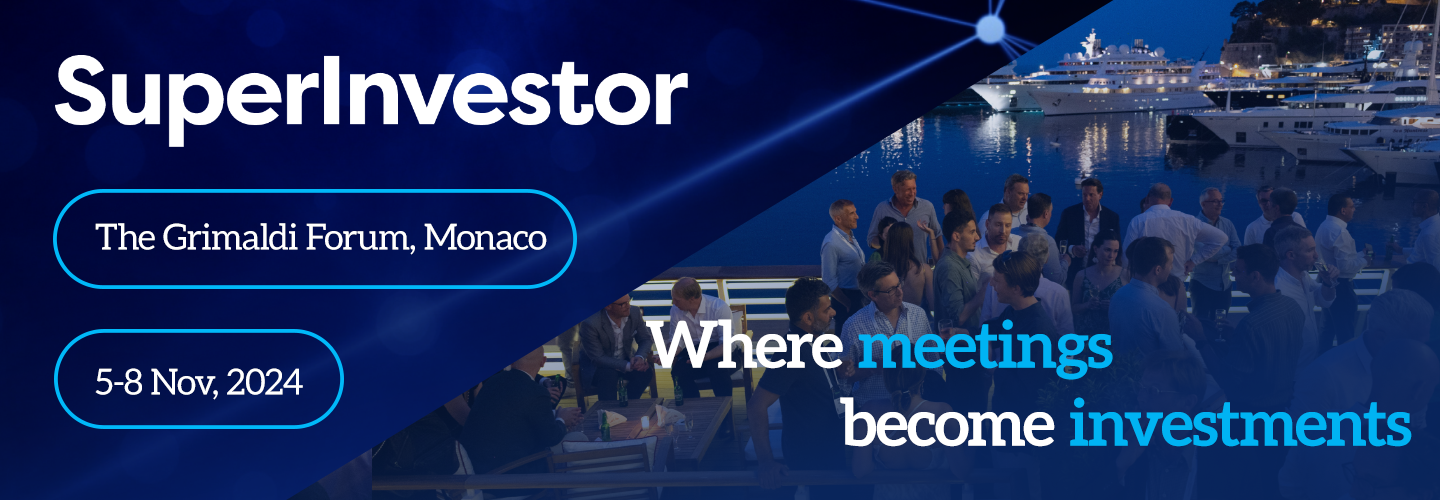SuperInvestor LP snapshot: Christopher Bär, MPEP Luxembourg Management S.à r.l. Panellist

In November, SuperInvestor is getting a new home in Monaco. This will provide the space for even more private market professionals to gather, and share crucial updates on the industry, establishing connections to take their business further and develop the future of finance. In the coming months we will be shining the spotlight on some of the key LPs and GPs joining us at The Grimaldi Forum, to share exclusive insight on their investment strategies and key developments in the market.
This week, we caught up with Christopher Bär, Managing Director, MPEP Luxembourg Management S.à r.l. He is primarily responsible for portfolio management, serving on MPEP’s investment committee and holds a board position in the AIFM. Learn more about how fund of funds are currently viewing the market, and the advantages of investing in the lower-mid market in Europe and North America.
What’s your investment strategy?
We are a Private Equity FoF with a very focused approach – only one product in one asset class – which perfectly aligns us with our investors. Within private equity, we further focus on primary buyout fund investments in the lower mid-market across Europe and North America.
Our fund of funds programs offer investors an almost asymmetric risk-reward profile, based on two key pillars: First, we take a very conservative approach by focusing exclusively on primary buyout funds with proven track records in the established investment regions Europe and North America. Second, our clients benefit from strong outperformance potential, which is enabled by gaining access to best-in-class managers in the lower mid-market segment.
The lower end of the market offers several structural advantages. For example, lower mid-market companies are often less professionally run, giving private equity managers ample opportunities for value creation. In addition, entry prices and leverage ratios are typically lower than in the large-cap space, leading to an attractive risk-return profile. So, in short: By combining these two pillars, we want to ensure our LPs benefit from both stability and the opportunity for outsized return.
Zooming in on FOF’s: What is their relevance in today’s market, and how do you expect that do develop or change in the next 1-3 years?
A Private Equity FoF’s relevance, not only in today’s market, is to provide access (i) to the asset class in general in an efficient way and/or (ii) a specific segment of the asset class that investors could otherwise have difficulties getting exposure or the right exposure to.
The first point generally remains relevant today, in case investors want to invest in private equity due to its high absolute returns coupled with relatively low volatility, but simply don’t have enough capital to build a diversified portfolio or the staff to execute on it. We also see investors who have invested directly in funds themselves over the last few years and now want to get a greater diversification, or feel that getting a similarly broad exposure with comparable or even better net returns with a FoF, with much less administrative burden (as we manage everything), frees staff up to focus on activities where they feel like making more impact.
The second point though, getting access to specific segments, is gaining even more importance in today’s environment. Investors seem to increasingly value the structural advantages of the lower mid-market vs. the large cap space. That being said, the lower mid-market is also more difficult to navigate and getting access to the best performing managers, that are typically highly oversubscribed, presents a challenge. Having an experienced partner, that has been navigating this space for more than a decade, provides an attractive way to get exposure and capitalize on the structural advantages of this segment.
What are the biggest challenges you’ve had to overcome?
The two major challenges we face on the investment side is navigating a vast and opaque market and ultimately getting access to the best-performing managers. Despite today's more challenging fundraising market, top-tier funds continue to attract by far more capital that they can “digest”. This is especially true in our segment, that is seeing increased interest by institutional investors due to its structural advantages compared to the large cap space. A recent survey by placement agent Rede Partners found that 57 percent of LPs plan to increase their allocation in lower mid-market buyouts over the next year.
Fundraising also continues to be challenging for almost all market participants. Hence, also we need to continue to go the extra mile to broaden the funnel and stay focused with our approach and succinct in our messaging to make sure investors can quickly grasp our value-add and differentiation in a competitive market.
What are the most important factors you’re looking for in a manager?
We look for five key factors when selecting GPs for our fund-of-funds programs. First is the human factor. Success in private equity depends heavily on the people involved in a transaction. We therefore carefully examine team dynamics, personalities, motivations and relevant experience to predict the likely outcomes of future funds. Second, a strong track record is essential. Our investment team conducts extensive quantitative and qualitative analysis of past funds to ensure that GPs have repeatable processes and sustainable differentiators for market leading returns.
Thirdly, we prefer managers with strong sector expertise and operational capabilities, who actively support their portfolio companies in creating scalable organizations and driving top line growth through organic measures. We also look for aligned interests and only invest in managers who have significant personal investments in their funds and whose compensation is linked to performance. Finally, we place a strong emphasis on ESG criteria, having a clearly defined set of mandatory elements and using our proprietary tool to ensure that managers comply and improve over time.
As an LP, why are you choosing to attend SuperInvestor this year? How does it support you in your success?
We are realistic in this regard. You will, in most instances, not have deep dives into specific topics comparable to more “classic” update or due diligence meetings. That being said, it is a great way to efficiently get high-level corporate and portfolio updates and even initial face-to-face meetings.
You also get a good feel for the broader sentiment and topics that are on people’s mind through the many different people you talk to in a very short period of time.
Last but not least, when you are in the industry for a long time and also attend the Super Return and SuperInvestor conferences for almost 15 years, there is also a social aspect to it as it almost feels like a class reunion, which we simply enjoy.
